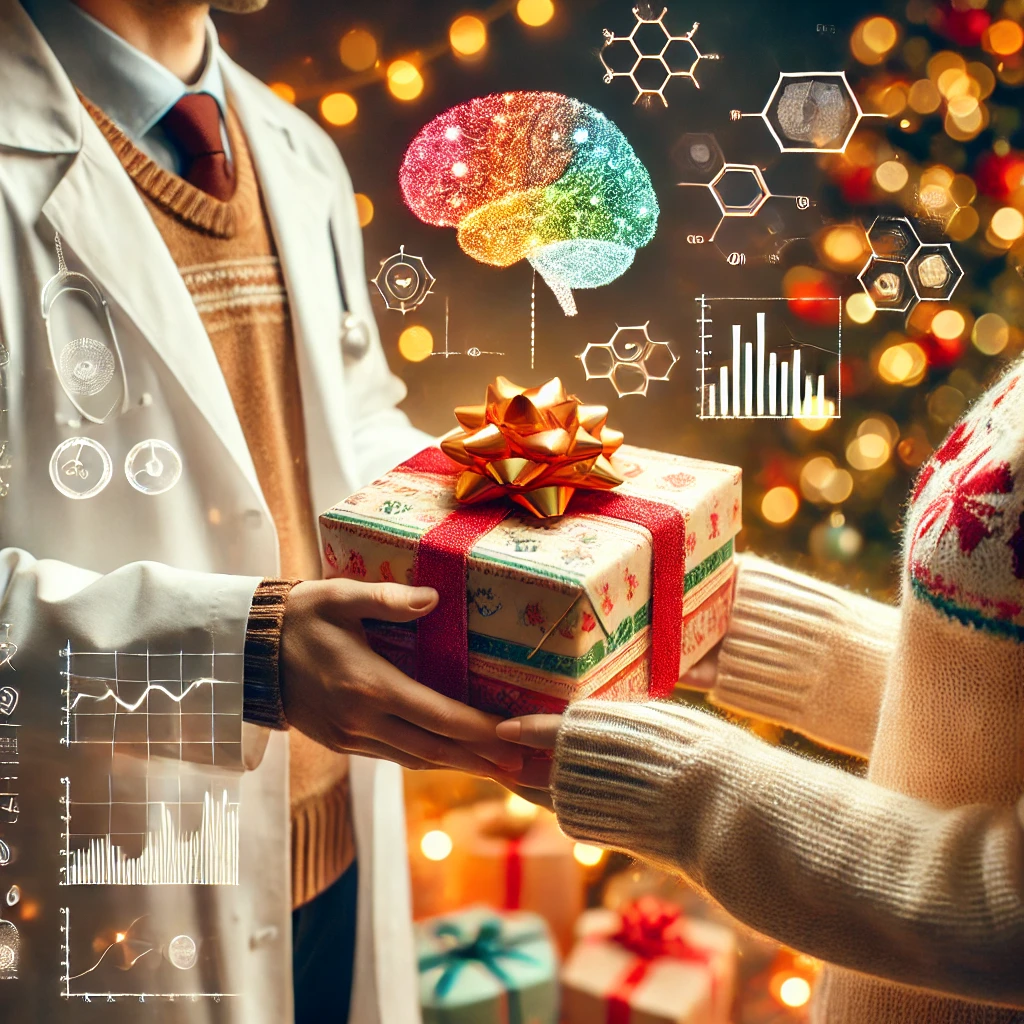Right around when the holidays roll around, most people frantically flock to the stores in search of the perfect gifts for their loved ones. Maybe they’ll buy some nice wrapping paper and cut a shiny ribbon to put on top. Perfect. But the best part? Watching your loved ones open up the present you so carefully put together. Like many people say, giving a gift can many times bring forth a joy much greater than receiving one, but why is that?
To break things down a bit, within our brains we have something called a “pleasure center” that controls our innate desire to seek pleasure. In scientific terms, this is known as the nucleus accumbens (NAcc) which is in control of our brain’s system for reward and, and consequently, addiction. According to the Cleveland Clinic, “This system is designed, from an evolutionary standpoint, to reward you when you’re doing the things you need to survive – eat, drink, compete to survive, and reproduce.”
This is why things like junk food and alcohol are so addictive, they trigger the release of high amounts of pleasure, or dopamine, the famed “happy chemical” and in turn make us want these things more. It is purely our bodies doing what it is programmed to do, something in this day and age that can be used against us.
Now how exactly does this connect to giving a loved one a gift? Returning to the evolutionary outlook, social status is hardwired into our brains to be a part of our survival, making it a key aspect to being rewarded. In more primitive times, we relied on numbers and groups in order to survive in the wild, so it was imperative to be able to please/maintain our relationships. As a result, our brains made it easier for us to put importance on our social status by activating the happy chemicals when we did something beneficial for our role. Nowadays it is not as necessary; however, the instinct still remains.
In terms of gift-giving, this evolutionary instinct mirrors the past. Maybe you’re giving a present begrudgingly to your annoying older cousin, perhaps not out of compassion and willfulness, but maybe more because of the instinctual fear your mom will threaten your survival if you don’t.
Another aspect to think about is that someone else’s happiness could affect your own. According to the University of Arizona, “There is a growing body of research suggesting that feeling close to someone, or caring deeply for them, involves considering this person as a part of ourselves… What this all means is that when we are kind to others, we are, in a way, being kind to ourselves.”
Because of this, when we give others something, our brains nearly allow us to live vicariously through the happiness of the other. In many ways, our brains are built to receive at least a balance or an imbalance in our favor; it is in our very nature in order to survive.
Giving is a great way to bring joy to both our loved ones and ourselves. There’s a lot more to the act than it seems!

